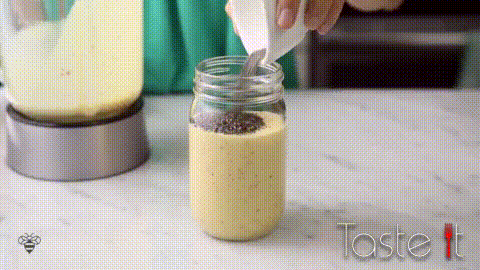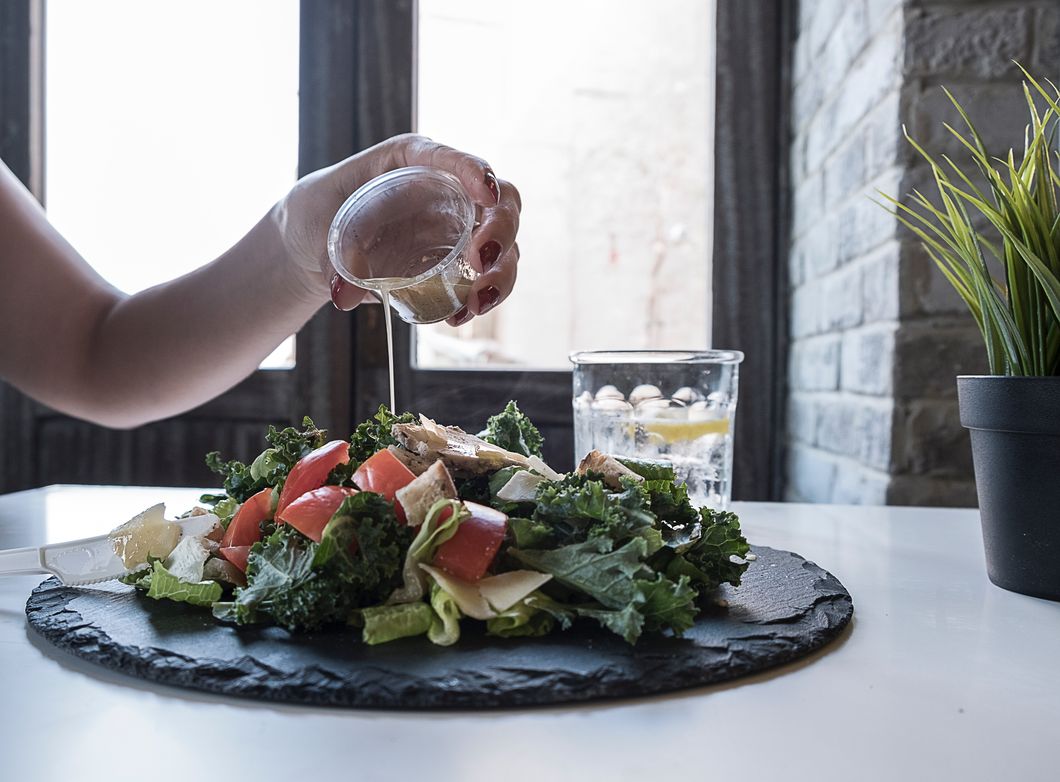For the past six years I have followed a vegan diet.
Over the years, I have learned a lot about what works on a plant-based diet (and what doesn't), and during this process I have found a lot of information floating around about plant-based eating to be unsupported by fact or science.
If you follow any vegan influencers on social media, you may have noticed a recent wave of popular vegan "youtubers" reintroducing animal products into their diets. Unfortunately, there has been a trend among vegan content creators embracing extreme, unhealthy, and at times dangerous ways of eating, and then promoting these nutritionally inadequate diets to their large and impressionable audiences. Many of the diets promoted by these influencers are very low in calories and lacking in essential nutrients, and while it is absolutely possible to eat a healthy vegan diet, it requires knowledge and careful planning. Therefore, I have compiled a list of some of the vegan nutrition tips I find most important below.
1. Make sure you eat enough food.
One of the biggest complaints I hear from people trying to go vegan is that they never feel satiated. As registered dietitian Jack Norris points out, "Simply removing animal products from a typical American diet is going to leave you with mostly low-calorie foods such as salads, vegetables, and fruit." Therefore, it is important to make sure you are eating enough calories to meet your daily caloric needs. In addition, make sure you are including plenty of protein and enough fat in your diet, as this will help you feel satisfied.
2. Get enough iron.
Some vegans struggle to keep their iron levels up, particularly because plant foods like legumes and grains contain phytates, which can inhibit iron absorption in the body. There is also evidence that vegans have higher iron requirements due to the low absorption of plant-sourced iron. Because an iron deficiency can come with a number of unpleasant symptoms, such as fatigue, dizziness, and brittle nails, and can cause more serious health problems if left untreated, it is best to focus on getting plenty of iron in your diet. Make sure to eat plenty of legumes, such as beans, lentils, and peanut butter. Dark leafy greens, fortified plant milks and soy products are also good sources of iron. Also try to include foods high in vitamin C at your meals, such as citrus, strawberries, broccoli and bell peppers, as it dramatically increases iron absorption and helps counteract the effects of phytate.
3. Eat calcium-fortified foods.
 Gym Cross Fit GIF - Find & Share on GIPHYGiphy
Gym Cross Fit GIF - Find & Share on GIPHYGiphyCalcium is incredibly important for bone health, particularly for women. Women generally have smaller, thinner bones than men and are therefore more prone to osteoporosis. In addition, the bone-protecting hormone estrogen declines as women age, which can result in bone loss. Therefore, it is important to focus on getting enough calcium in our diets to support long-term health. Most leafy greens contain an abundance of calcium, but they are high in oxalates, which bind to the mineral and decrease its absorption. Therefore, registered dietician Ginny Messina recommends "at least 2 cups per day of foods that are rich in well-absorbed calcium," including calcium-fortified plant milks and tofu. Just make sure they are actually fortified with calcium, as some brands of plant milks and tofu are not!
4. Consider a vitamin D supplement.
 Giphy
GiphySpeaking of bone health, vitamin D might be more important than calcium in preventing osteoporosis. The only natural (ergo non-fortified) food sources containing vitamin D are animal products, so if you are not getting regular, adequate sun exposure, consider taking a vitamin D supplement. It is also possible to meet daily vitamin D requirements through the consumption of fortified foods, such as plant milks.
I personally choose to supplement, rather than expose unprotected skin to direct sunlight, particularly because I am very fair-skinned and therefore at a high risk of developing skin cancer. If you do choose to supplement, please consult with your doctor first, as there are additional risks to supplementing fat-soluble vitamins. Vitamin D2 supplements are suitable for vegans, but there is also a vegan form of vitamin D3, which is derived from lichen, sold under the name "Vitashine." There is some evidence that vitamin D3 is more effective at raising vitamin D levels than vitamin D2, but D2 is probably adequate for most people.
5. Get your Omega-3's.

DAM
Most people probably think of fish when they hear about omega-3 fats, but it is possible to get your omega-3's from plant sources as well. The omega-3 fats are ALA, DHA and EPA — ALA is considered an essential fat, but DHA and EPA are not, as the body can convert ALA into these fatty acids. Flaxseeds and chia seeds are excellent sources of ALA, and canola oil and walnuts contain ALA as well, but these plant foods do not contain DHA or EPA. Vegans must rely on the conversion in the body of ALA into DHA and EPA, however, as Ginny Messina points out, "people vary dramatically in their ability to convert ALA to DHA and EPA." Therefore, it is probably beneficial to take a vegan DHA/EPA supplement. I personally take one by the brand DEVA, but there are others currently on the market.
6. Eat your beans!
Protein is a sensitive subject for some vegans, but it can be easy to fall short on meeting daily protein requirements on a plant-based diet, especially if you are not eating legumes. It can be particularly difficult to meet daily requirements for the essential amino acid lysine, so it is vital to eat plenty of beans, lentils, nut butters and soy.
Speaking of soy, this nutritious plant food has been the subject of a lot of fear-mongering over the years, but recent studies suggest that soy might in fact decrease the risk of breast cancer, be beneficial in preventing prostate cancer, and reduce LDL cholesterol. Therefore, don't be afraid to include tofu and soymilk in your diet!
7. A B12 supplement is non-negotiable.
While other supplements might be optional, supplementing vitamin B12 is mandatory on a vegan diet. Vitamin B12 does not exist in any plant foods, so you must meet your needs for B12 through supplementation or through the consumption of fortified foods. Vitamin B12 is needed for maintaining nerve cells, and a long-term B12 deficiency can sometimes lead to irreversible nerve damage.
Rather than taking several different supplements, you might want to consider taking a daily vegan multivitamin instead. This way, you are meeting your daily needs for vitamin B12, iron, and vitamin D, as well as other vitamins and minerals you might struggle to get enough of on a vegan diet, such as zinc and iodine. I personally take the Deva Vegan Multivitamin, and it works well for me.

















